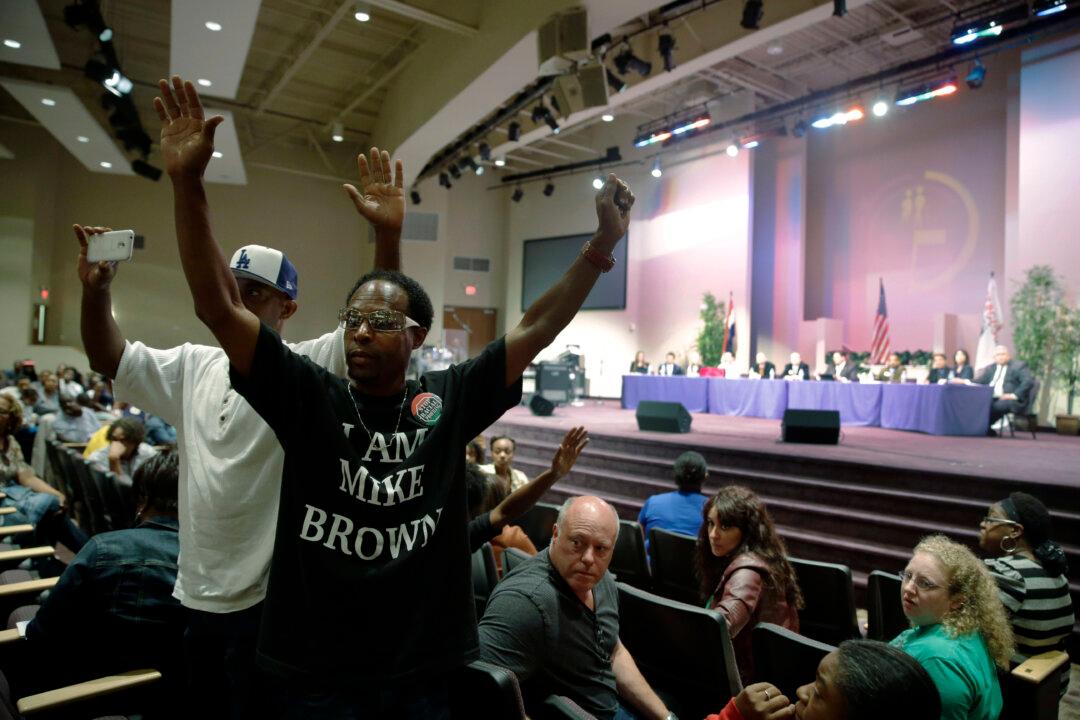A local business owner and resident of the embattled small town of Ferguson, Missouri, is suing the state for the right to anonymous political speech. The man, who filed the lawsuit on Wednesday under the pseudonym John Doe to protect his identity, has said he fears “retaliation” if he exercises his First Amendment right.
The complaint, filed in Missouri U.S. District Court, states that Doe wants to anonymously publish and circulate flyers advocating on behalf of one candidate for the upcoming April 7 Ferguson City Council elections. The flyers would also contain information against another candidate. He said through the complaint that he fears “retaliation by Ferguson officials for the content of his political speech,” and doesn’t want to include his name and address on the flyer.
The right to anonymous political speech is a protected First Amendment right, and can include activities such as attending a political rally or protest march with concealed identity or publishing and distributing political pamphlets.
Missouri state law, however, outlaws published anonymous political speech.




